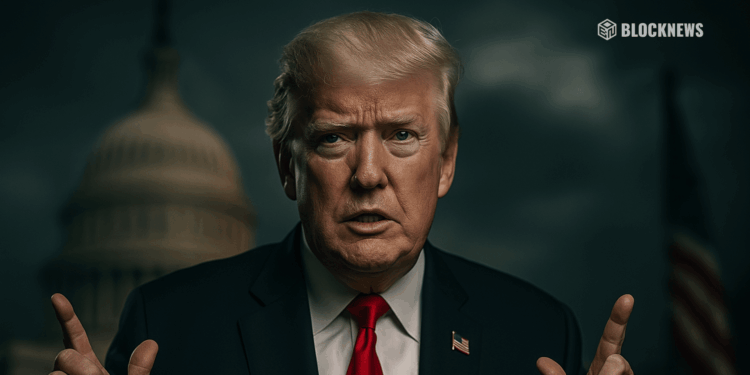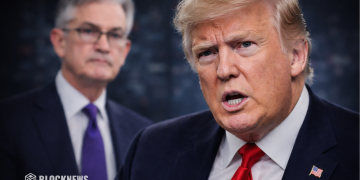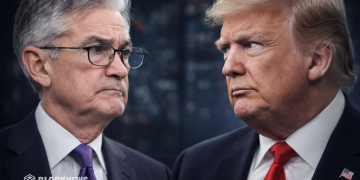- Trump warned on Truth Social that repealing or reversing his tariff policies could cost the U.S. “in excess of $2 Trillion Dollars” in tariff revenue and investments.
- He described that outcome as a “national security catastrophe,” arguing that the stakes go beyond economics and into strategic risk.
- The president blamed Democrats and foreign governments for trying to discredit his tariff strategy, reinforcing tariffs as a core pillar of his political and economic narrative.
United States President Donald Trump doubled down on his tariff strategy on Monday, arguing that rolling back his trade policies would come with a staggering price tag. In a post on Truth Social, he claimed that reversing or repealing his tariffs could cost the country “in excess of $2 Trillion Dollars” when you factor in both tariff revenue and related investments.
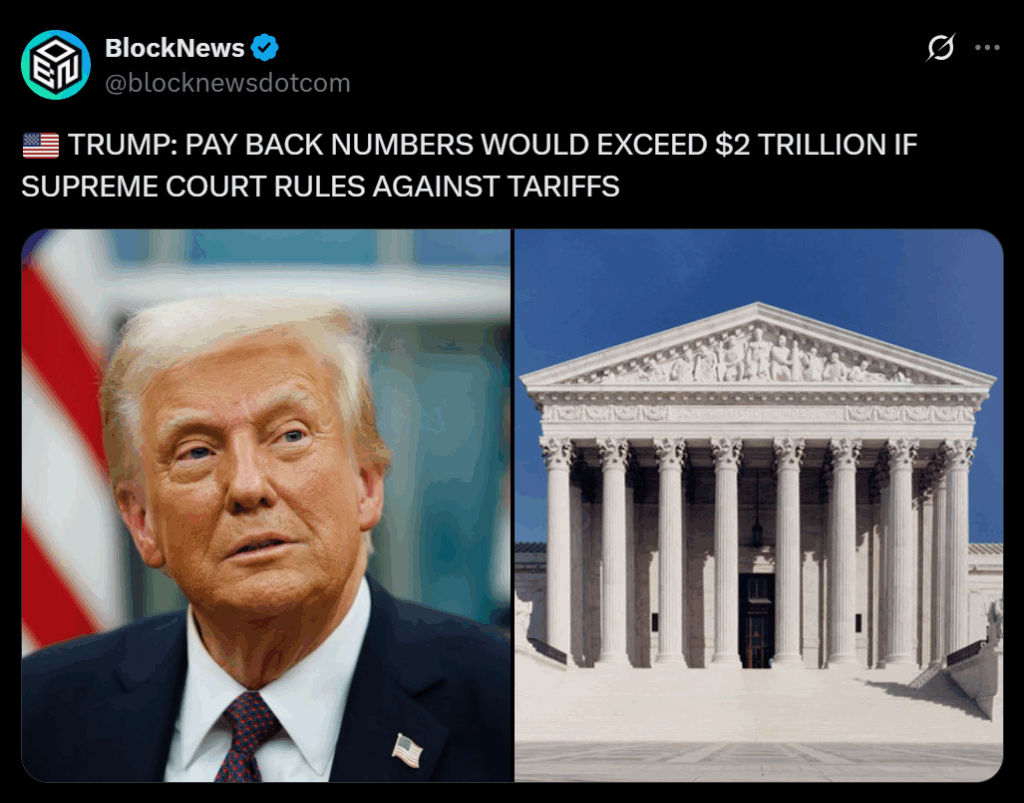
According to Trump, that hypothetical bill wouldn’t just be an economic problem. He framed it as a direct threat to national safety, warning that such a move “would be a National Security catastrophe.” In his view, the tariff regime isn’t just about squeezing foreign exporters — it’s part of a broader strategy to shore up U.S. leverage, revenue, and industrial strength.
He also suggested that efforts to discredit his tariff policy are not coming only from domestic opponents. Trump blamed Democrats and unnamed foreign governments for trying to undermine his approach, casting the criticism as politically motivated and aligned with overseas interests that benefit from a weaker U.S. trade stance.
Politics, Pressure, and the Tariff Narrative
Trump’s comments arrive as debates over tariffs, inflation, and affordability continue to dominate U.S. economic discussions. The administration has leaned on tariffs as both a bargaining tool and a funding source, pointing to the hundreds of billions already collected as proof that the strategy “works” for the country.
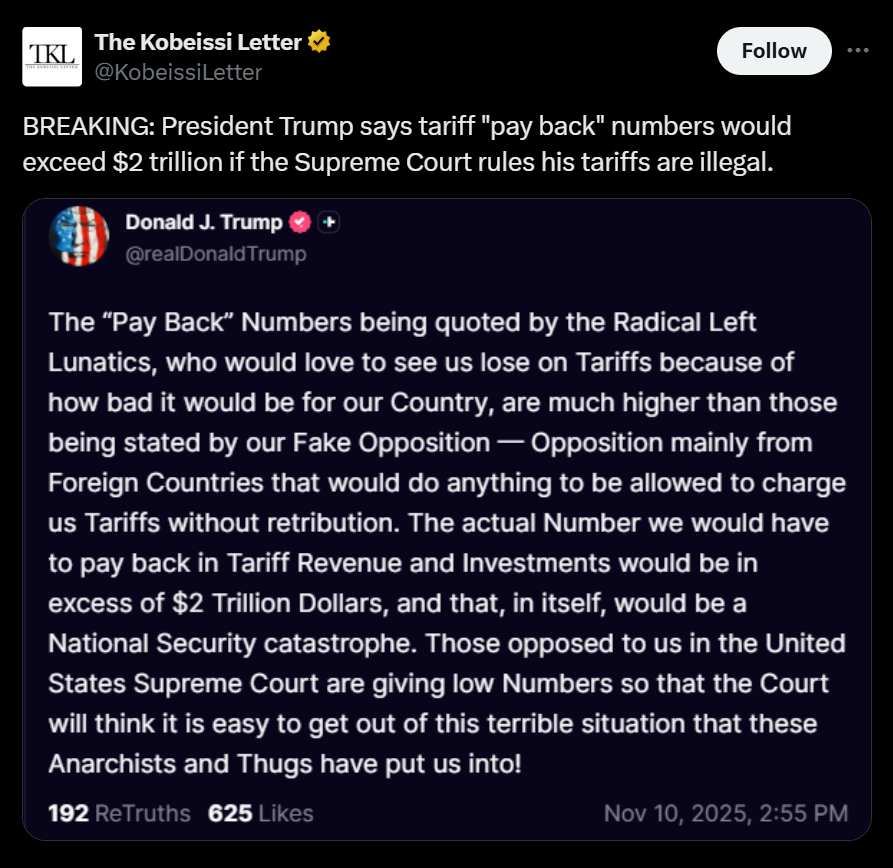
But the president is now going a step further by arguing that unwinding these policies wouldn’t just be a policy disagreement — it would allegedly force the U.S. to “pay back” tariff-linked revenue and investments, adding up to more than $2 trillion and, in his words, putting national security at risk.
Trump wants voters and lawmakers to see the tariff framework as something too big and too strategic to dismantle without serious consequences, financially and geopolitically. Whether critics buy that framing is another story, but the rhetoric shows he has no intention of backing away from tariffs as a central pillar of his economic playbook.


